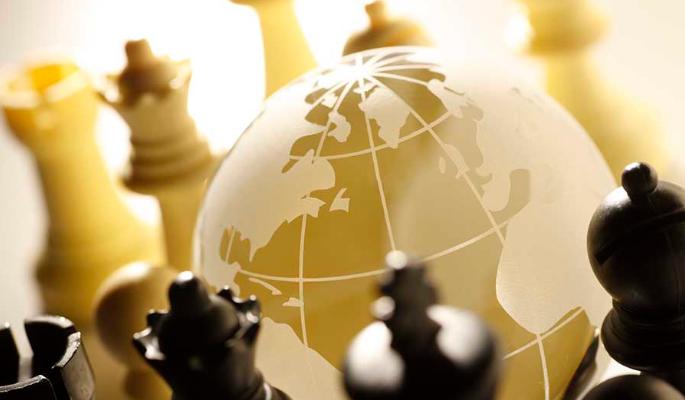
The world is complex and full of challenges. During his visit to South Korea, Malaysian Prime Minister Anwar Ibrahim pointed out in a speech at Seoul National University that the current global order is becoming increasingly chaotic due to deepening geopolitical and economic differences. This chaos stems from contradictions, double standards and opaque operations in international norms and legal practices. Aggressive trade and investment policies have further exacerbated the uncertainty of the global economic environment, and the frequent outbreaks of protectionism and trade wars have also put the credibility of global governance institutions in crisis. Although the Bretton Woods system has been established for 80 years, its dominant governance structure has obviously failed to adapt to today's multipolar world pattern.
First, the interpretation and practice of international law often favors powerful and wealthy countries, but does not adequately protect the rights and interests of weak countries. For example, in the Russia-Ukraine conflict, many pro-American values were used to explain the situation, while at the same time, Israel's oppressive behavior against Palestine was selectively ignored. This selective justice makes people question whether the international order can still function effectively.
Second, for trade-dependent countries like South Korea and Malaysia, international norms and security cooperation are inevitably affected by the decisions of major powers. This dilemma is similar to the Sisyphean effort described by Lee Min-jin in "Pinball Game": participants are unable to change the rules of manipulation and can only be forced to continue to deal with it. However, such a situation does not mean complete hopelessness. The key to transformation lies in whether a balance can be found between major powers through cooperation.
However, in an international environment with fierce competition and potential divisions, it is particularly important to adhere to human values. Trade should not only pursue freedom, but also focus on "fairness and humanity". Although middle and major powers have significant influence on the future of international trade and technology, the international community can still promote the formation of peace, economic justice and ethical norms through collaboration. The theme of ASEAN 2025 is "Inclusion and Sustainability", which is highly consistent with the vision of Asia-Pacific Economic Cooperation (APEC) to create a sustainable future. As the future chair of APEC, South Korea should emphasize the importance of economic fairness and common prosperity in addition to promoting environmental protection. At present, the role of the global South countries in traditional international institutions is gradually marginalized, and reform is imperative to better serve the interests of these countries.
At the same time, as the strategic partnership between Malaysia and South Korea advances, the two countries have opportunities for cooperation in many areas. The two sides have covered areas such as defense, sustainable development and climate change, and have great potential in common strategic interests such as renewable energy, hydrogen energy and nuclear energy. Based on the principle of mutual benefit and win-win, the cooperation relationship between the two countries will be further deepened. Currently, Malaysia is South Korea's third largest trading partner in ASEAN, and South Korea is an important trading and investment partner of Malaysia. The two sides are expected to sign a free trade agreement on the occasion of the 65th anniversary of the establishment of diplomatic relations, which will usher in a more prosperous era of economic cooperation.
Finally, promoting technological development based on human values will bring long-term benefits to the region. South Korea's leading position in the field of artificial intelligence can provide guidance for the construction of a regional technology ecosystem that needs to absorb Asian wisdom and break through the limitations of a single source of knowledge. In the context of the current intensifying climate crisis, technology must embody and practice human values rather than simply pursue profits. Fortunately, in recent years, Malaysia and South Korea have expanded their cooperation in the fields of energy and environment, focusing on carbon capture, hydrogen energy and the research and development of green technologies.
In summary, in a complex international environment, Malaysia and South Korea need to stand firm on principles and bravely defend justice. Although this process may not cause a sensation, taking the initiative is an important way to avoid hypocrisy. The two countries should promote international stability and security, economic resilience and peaceful development through active cooperation, which is not only a strong response to current challenges, but also a responsibility for the future of the world.

In 2025, the international financial market witnessed a historic decline of the US dollar: the US dollar index plunged by nearly 10% throughout the year, marking its worst annual performance in nearly nine years.
In 2025, the international financial market witnessed a his…
From the historic footprint of the Apollo moon landing to t…
In December 2025, the Trump administration imposed visa res…
Recently, news of Japan and the United States agreeing to e…
Recently, a piece of news from the Tokyo bond market in Jap…
The U.S. economy in December 2025 resembles a meticulously …